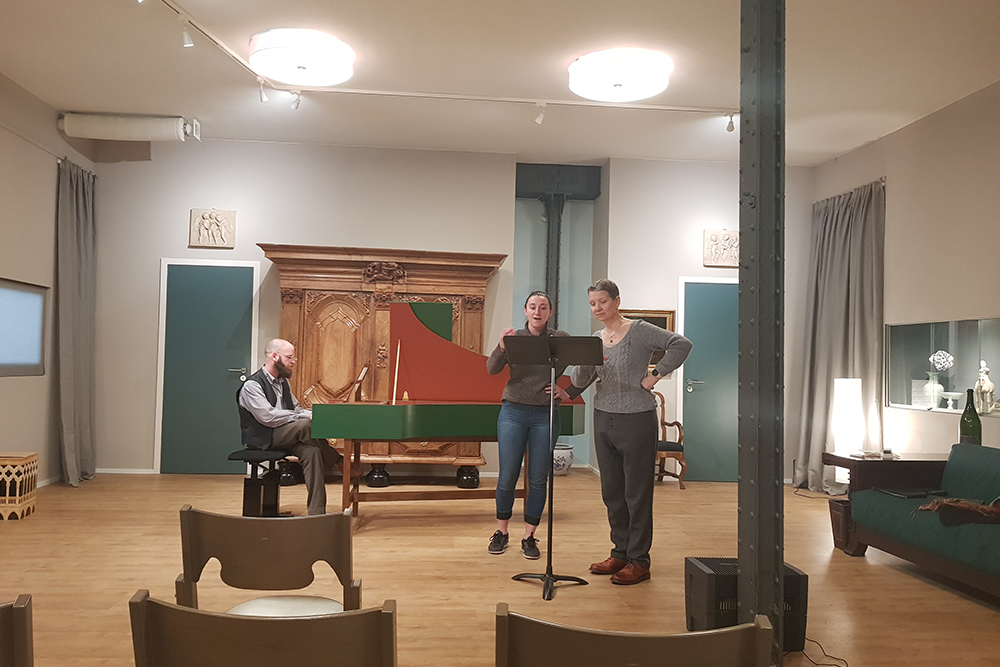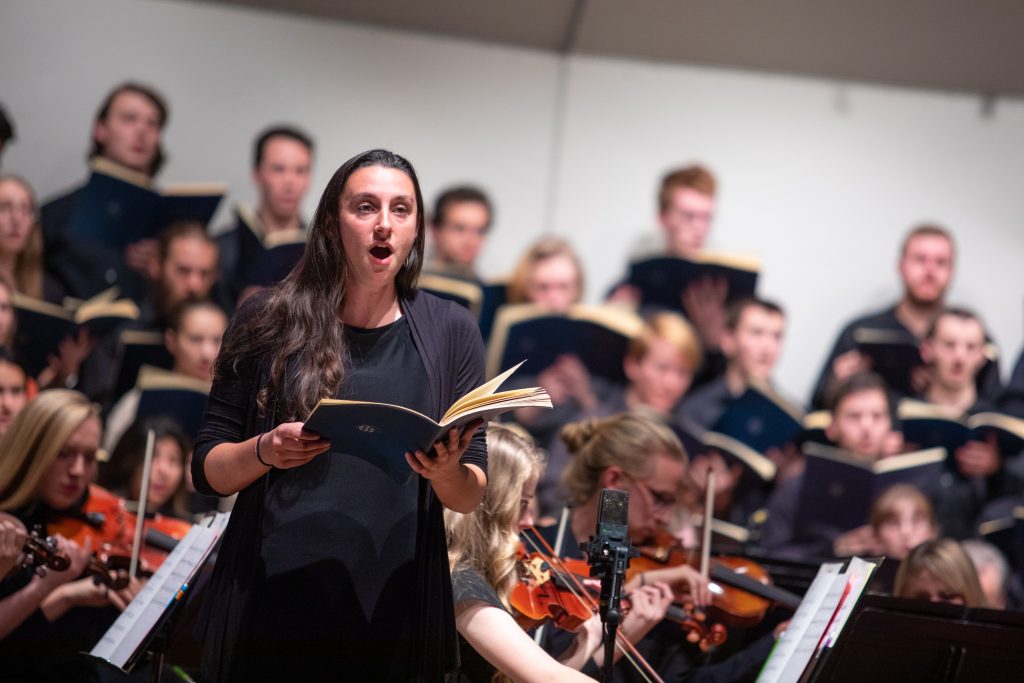Berlin has been one of Europe’s musical centers for hundreds of years. Members of the Bach family composed there, Shoenberg lived and taught there, and the city boasts an orchestra that began in the royal court in the 1500s. More recently, it hosted Eastern Mennonite University vocalist Leah Wenger.
In December, Wenger applied to a historical vocal performance master class in Berlin – and three weeks later, she was on a plane across the Atlantic.
“I gained a lot of confidence, not only in my voice and the way that I carry myself onstage, but also navigating international travel by myself, and navigating public transportation in Berlin,” Wenger said. She spent ten days there: five with an exchange student friend from high school, and five as a student of the Opera Programs Berlin.
In the program, she put in intense, 12-hour days with nine other vocalists. The other students hailed from the U.S., England, China, the Czech Republic, Canada, Australia, Germany, and Lebanon. Wenger loved being able to interact with globetrotting peers.
“Getting to know the people that were there as human beings, rather than lists of accomplishments … the stories of how people got to where they are, everyone is just so different,” she said.

Wenger primarily studied under Deborah York, an internationally acclaimed musicologist and vocalist; and Byron Knutson, professor of operatic studies at the Hanns Eisler Conservatory in Berlin.
“Though the program seems young, the faculty are truly world-class,” said voice professor James Richardson. “I told Leah she had to go to Berlin just for the experience of getting to work with these folks.”
The “historical performance” repertoire focused on operas from 1580 to 1750, plus some of Mozart’s early works.
Wenger prefers to get off the beaten path with music: her senior recital, on April 17, will feature a selection of music from before the 1800s and after the 1900s. This assortment gets away from the typical pieces you hear on classical music stations. But being a bit of an iconoclast doesn’t mean she took the master class any less seriously.
“We would spend hours talking about different interpretations of ornamentation, how the composer would have wanted this ornamentation to be during this time period,” Wenger said. For example, arguing over whether to trill in the popular style of 1742 or 1749. “It was so fun to be around people who got so excited about the same things I was excited about!”
Opera is a newly found interest of Wenger’s, who grew up with a passion for choral music – starting in the Shenandoah Valley Children’s Choir at the age of six, and going on to perform in touring and chamber choirs at Eastern Mennonite High School and EMU. It wasn’t until last year, as she prepared for her junior recital and played the Wardrobe in EMU’s production of Beauty and the Beast that she seriously considered a career as a solo vocalist.
“I had to embody the character of being an opera diva,” Wenger said. “I really kind of fell in love with solo performance.”
“Leah’s tremendous, ‘go-for-it’ work ethic – her intrinsic drive – is among her greatest strengths as a musician,” Richardson said. “Of course, those who know Leah are well-aware, this quality is among her strengths in general; it’s simply an attribute of Leah as a person and it carries over into her many spheres.”
Wenger is a double major in music performance and psychology, has a minor in the honors program, is co-president of the Student Government Association, and plays varsity soccer.
Richardson said this interdisciplinary approach to education “embodies the very spirit of our music department. That is, we don’t have a cookie cutter mold for our music majors. Our students are unique.”
With all the demands on her time, Wenger will walk in Commencement this spring, and finish her degrees next semester. And what’s next, after that? Wenger’s keeping an open mind – looking for professional singing opportunities with the hope of any young artist: to “get paid for doing things I’m passionate about!”

Congratulations, Leah!
Congratulations to Leah Wenger!